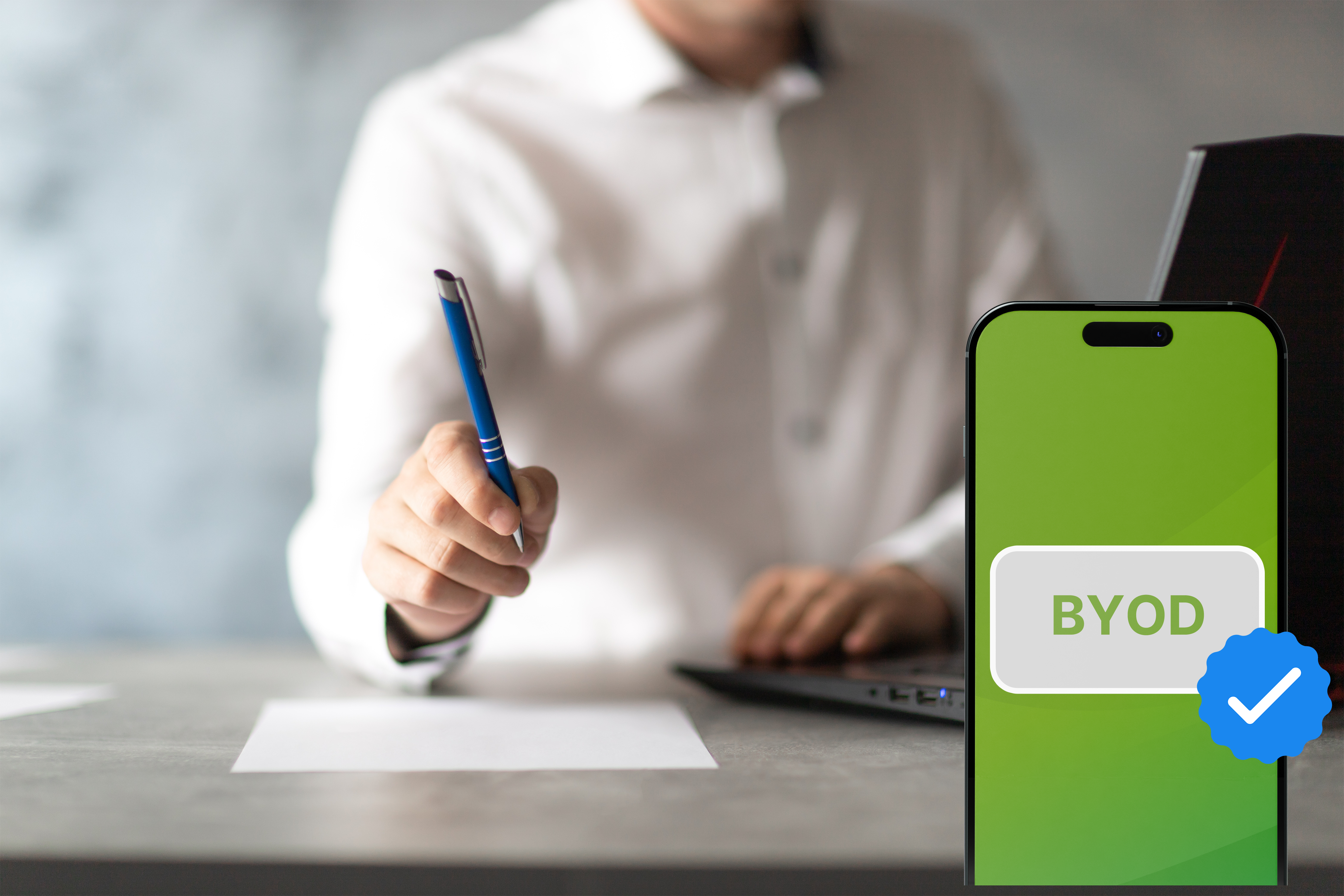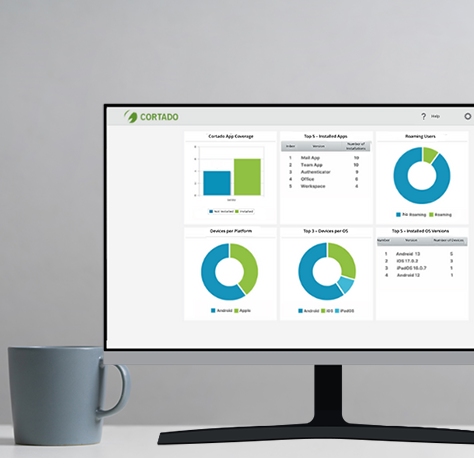A BYOD agreement is essential for any BYOD program. Learn which key clauses are indispensable and why they matter. For those ready to take action, a BYOD template is available for download.

What Is a BYOD Agreement?
A BYOD agreement (Bring Your Own Device) is a contractual document between a company and its employees that governs the use of personal devices like smartphones and tablets for work purposes. It sets out clear guidelines for protecting, managing, and using company data on personal devices.
The goal of the agreement is to minimize security risks, ensure compliance with data protection regulations like GDPR, and define the responsibilities of both employers and employees.
Why Is a BYOD Agreement Important?
A BYOD agreement is crucial because it sets the legal and technical framework for using personal devices in the workplace. Without clear guidelines, companies risk data loss, security breaches, or legal disputes. A well-crafted, structured agreement ensures transparency for all parties and protects both the company and its employees.
Key Components of a BYOD Agreement
A robust BYOD agreement must address several aspects to balance corporate security and employee flexibility. These include clear guidelines on data protection, employee responsibilities, and the use of company resources.
- Technical Requirements: The agreement should specify the minimum technical standards that employees’ devices must meet to ensure compatibility with company security standards. For example, devices must support Mobile Device Management (MDM) to securely access corporate data.
- Data Protection: The agreement must emphasize employee privacy and explain the use of tools like Mobile Device Management (MDM). Employees need to understand how their data will be processed, monitored, and protected during their participation in the BYOD program.
- Separation of Business and Personal Data:Ensuring a clear separation between work and personal data is critical. The agreement should outline technical measures, like MDM, to support this separation and detail employee responsibilities when handling corporate data.
- Financial Reimbursement: The agreement should clarify whether and how employees will be compensated for using their personal devices for work. This might include reimbursements for mobile plans, data usage, or other costs incurred in the professional context.
- Work Hours: Specify the allowable times and contexts for work-related use of personal devices. Address concerns like overtime or after-hours availability to ensure fair work-life balance and compliance with labor laws.
- Device Loss or Theft: Include protocols for handling lost or stolen devices, such as enabling remote wipe functionality to secure corporate data.
- Device Liability: Clearly define who handles repairs or replacement costs if a personal device is damaged or lost. The agreement should specify whether the employer or the employee bears this responsibility.
- Ownership of Corporate Data: All work-related data stored on personal devices is still the property of the company. The agreement should mandate secure deletion or return of such data upon device replacement, resignation, or termination.
- Software and App Licenses: If the company provides apps or software for work purposes, the agreement should detail who pays for these licenses and whether they will remain on the device after the employee leaves the company.
Free BYOD Agreement Template
Want to create a BYOD agreement for your business? Our free template offers a solid foundation to establish clear policies and regulate the use of personal devices in the workplace.
From data protection and security measures to liability concerns, the template covers all critical points necessary for a successful BYOD strategy.
Download the free template now and ensure your BYOD agreement meets the highest standards of security and compliance!
Conclusion: A BYOD Agreement Is Vital for Your BYOD Program
A BYOD agreement is the cornerstone of any successful BYOD program. It provides clear guidelines for using personal devices in a professional setting, safeguarding both company data and employee rights.
By implementing security protocols, privacy measures, and clear responsibilities, companies can mitigate risks like data breaches or cyberattacks. A comprehensive BYOD agreement enables businesses to benefit from employee flexibility and productivity while supporting compliance with legal and internal standards.

Enjoy the Ease of Mobile Device Management
With Cortado MDM, you’re ready to go right away and can manage mobile devices easily and securely.